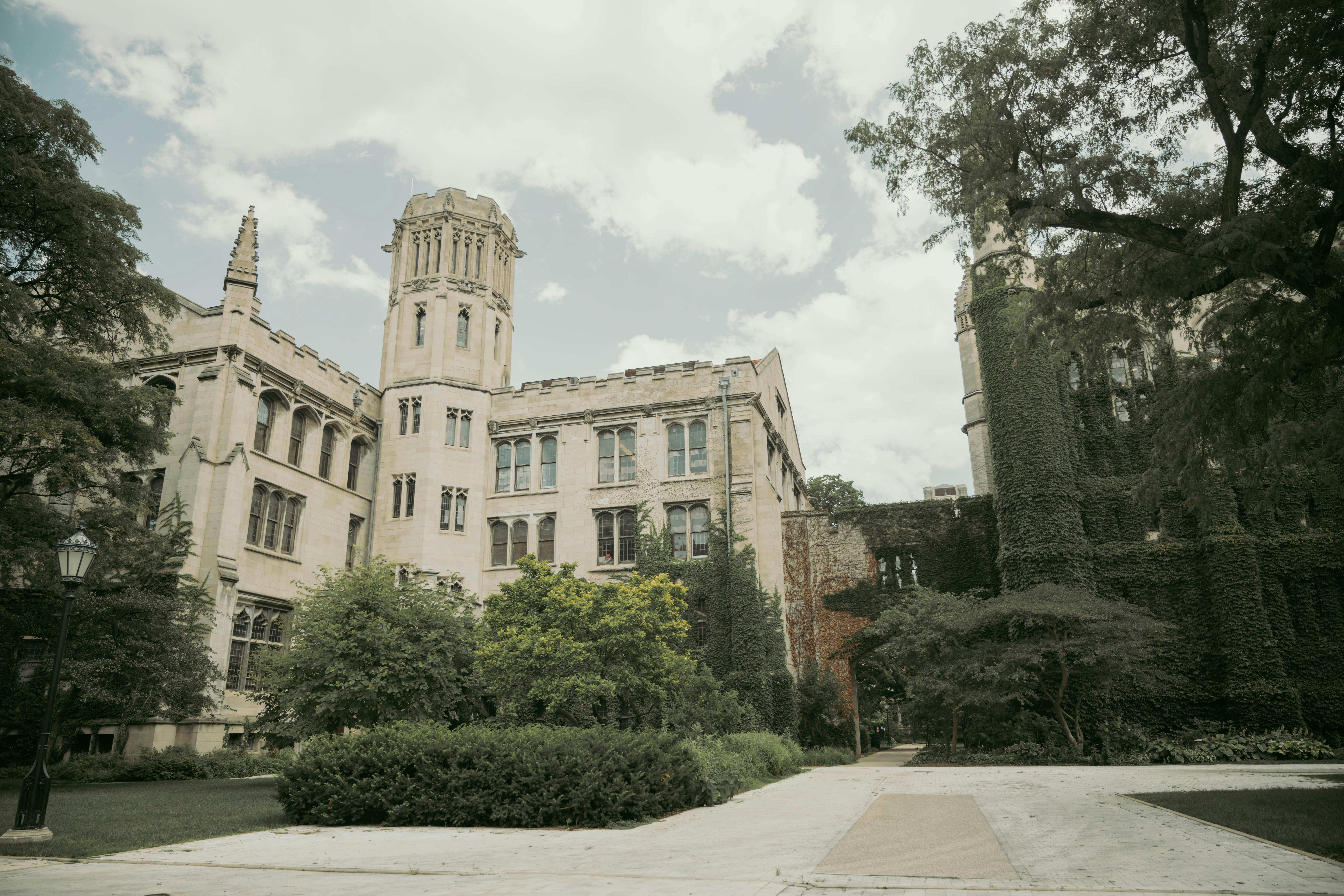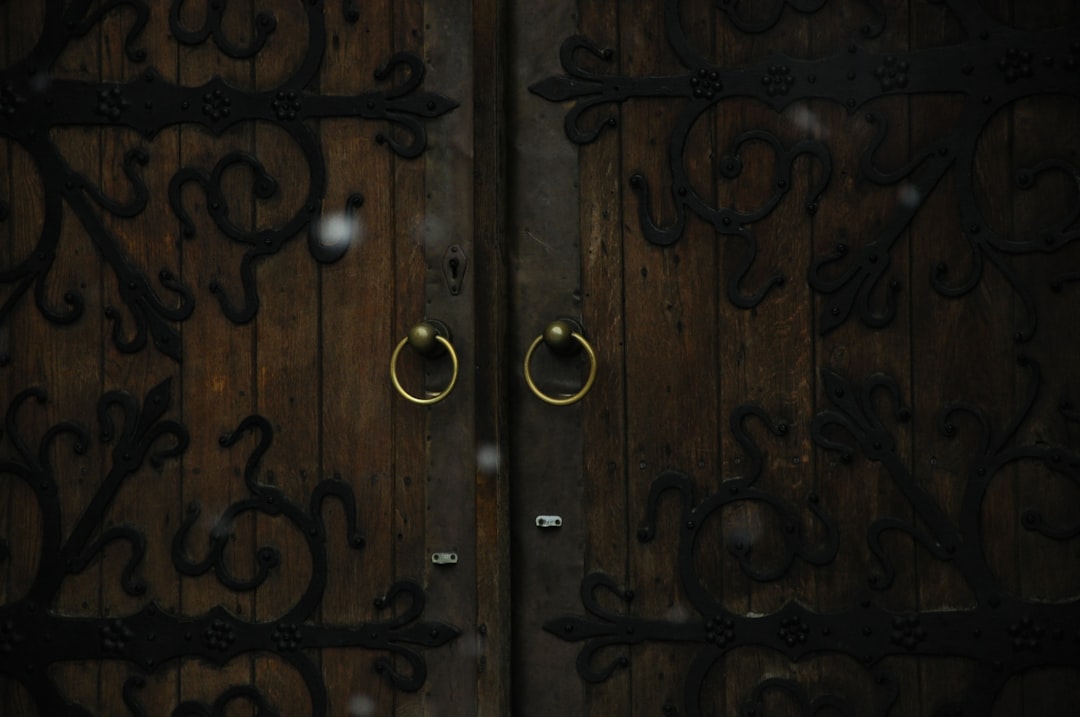University of Chicago Law School Application Guide
April 04, 2025 :: Admissionado
I. Introduction
A. Overview of University of Chicago Law School’s Ranking
The University of Chicago Law School stands as a paragon of legal education, consistently ranking among the top law schools worldwide. With a noteworthy emphasis on academic brilliance and rigorous scholarship, it’s no surprise that the law school maintains a coveted position in the upper echelons of legal academia. Notably, its acceptance rate hovers around a competitive 12.8%, signaling its selective nature and commitment to enrolling students equipped to maintain its esteemed status.
B. Unique Features of University of Chicago Law School
Distinctively renowned for its integration of law and economics, the University of Chicago Law School positions itself as a leader in scholarly innovation. This integration profoundly influences teaching and research, reinforcing its position as a bastion for avant-garde legal thinking. The school’s commitment to intellectual diversity and open discourse further fortifies its reputation, inviting robust debates and pioneering discussions, a hallmark of its interdisciplinary environment. The Chicago Law and Economics Movement, pioneered here, underscores its historical commitment to shaping contemporary legal thought.
C. Application Timeline
Prospective students should be acutely aware of the key dates in the application process—strategic timing can make all the difference. The Early Decision deadline is a crucial milestone, set for December 1, which offers candidates a decisive edge for those certain that the University of Chicago is their top choice. Regular admissions are rolling through March 1, yet early application is encouraged for those eyeing the most competitive slots. A precise preparation timeline should include early LSAT/GRE/GMAT planning, fine-tuning resumes, gathering poignant recommendation letters, and crafting insightful personal statements, each a testament to the applicant’s distinct narrative and aspirations.
II. University of Chicago Law School Admission Requirements
A. Required Tests
When it comes to testing, the University of Chicago Law School demonstrates a progressive approach, accepting the LSAT, GRE, and GMAT. This flexibility provides applicants with a unique opportunity to showcase their strengths across different standardized assessments. However, the LSAT remains the gold standard, with the institution emphasizing the highest score, reflecting their holistic evaluation policy. Boasting a median LSAT score range of 169-175, the bar is set undeniably high, reaffirming the school’s demand for academic excellence.
B. Academic Prerequisites
In terms of academic credentials, the school leans towards candidates with exceptional academic records, evidenced by a robust GPA range of 3.83 to 3.99 among admitted students. Beyond stellar GPAs, applicants are expected to disclose any academic or legal infractions, emphasizing the importance of transparency and integrity as core values at UChicago. This approach ensures the admission committee can assess applicants comprehensively, considering both their academic prowess and ethical standards.
C. Application Components
The application process is as comprehensive as it is competitive, requiring careful attention to several key elements:
– Personal Statements and Addenda: These are more than mere pages—they are canvases for prospective students to paint a vivid picture of personal growth, resilience, and unique contributions (key themes UChicago values highly).
– Resume and Letters of Recommendation: Applicants should provide a well-rounded resume alongside letters of recommendation, with at least one from an academic source, affirming scholarly potential and character testimony. These documents collectively offer a multi-faceted view of applicants beyond test scores.
– Supplementary Essays: If required, these essays serve to complement personal statements, providing additional lenses into the applicant’s motivations and alignment with UChicago’s core principles.
Every application component is a piece of the puzzle, contributing to a seamless narrative that must align with the aspirations and ethos of the University of Chicago Law School. Candidates are thus encouraged to approach their applications as strategists, weaving their skills and experiences into a tapestry of potential and purpose.
III. Acceptance Rates and Comparisons with Other Top Law Schools
A. Law School Tiers
Positioned within the crème de la crème of American law schools, the University of Chicago exemplifies what it means to operate within a tier of utmost exclusivity. With an acceptance rate of approximately 12.8%, it firmly establishes itself alongside other venerable institutions, characterized by exceedingly stringent entry thresholds. This competitive arena—where acceptance rates consistently fall under the 15% mark—is a testament to the university’s relentless pursuit of excellence, ensuring that only the most distinguished candidates join its ranks.
In comparison to peer institutions, the University of Chicago’s selectivity is comparable to the likes of Harvard, Yale, and Stanford, where similar acceptance levels underscore a shared ethos of upholding academic prestige and intellectual agility. Prospective students are thus entering a high-stakes game of achievement, vying for a place in a community synonymous with legal innovation and leadership.
B. Program Fit
The concept of “fit” transcends mere statistics; it delves deeper into an applicant’s alignment with the school’s culture, values, and vision. At the University of Chicago Law School, “fit” echoes through its libraries and lecture halls as a harmonious blend of academic rigor and intellectual curiosity—a crucible where future legal pioneers are molded.
Applicants should, therefore, introspect and evaluate how their aspirations and experiences resonate with the school’s mission. Such alignment can be pivotal, considering that beyond the objective credentials, subjective qualities and personal narratives play a crucial role in admissions decisions.
When assessing program fit, consider how the Chicago approach to law—marked by its interdisciplinary focus and pioneering legal theory—dovetails with personal goals. A strong “fit” promises not just admission but seamless integration and fruitful academic endeavor at the law school.
IV. University of Chicago’s Personal Statement and Essay Guidance
A. Role of Essays in the Application Process
At the University of Chicago Law School, essays transcend the role of mere supplementary documents to position themselves as pivotal expressions of an applicant’s character and ambitions. They provide a unique window into an individual’s motivations, readiness for the rigors of law school, and above all, their alignment with the ethos of UChicago. Through these essays, the admissions committee discerns not only academic prowess but also the human stories behind the candidates—stories that reveal determination, intellectual vitality, and a commitment to legal excellence.
B. Tips for Crafting a Compelling Personal Statement
Crafting a personal statement is an exercise in authenticity and articulation. Here are some key strategies to help applicants create compelling narratives:
– Tell a Story: A personal statement is most powerful when it unfolds like a story. Embrace the narrative arc—begin with a defining experience, develop it with insights and challenges, and conclude with reflections and future ambitions. This approach ensures engagement and emotional resonance.
– Be Authentic: Authenticity is your ally. Engage with your unique experiences and values honestly, providing a glimpse into who you truly are. Avoid the temptation to shape the narrative to what you think the committee wants; instead, let your genuine voice shine through.
– Avoid Clichés: Many applicants may succumb to overused tropes or embellished achievements. Stand out by avoiding clichés and focusing instead on specific, personal experiences that highlight your individual growth and perspective.
– Reflect Deeply: Reflection demonstrates maturity and self-awareness. Showcasing introspection about past experiences and learning outcomes can effectively portray your readiness for the demanding environment of law school.
C. Specific Prompts
While the University of Chicago may provide specific essay prompts or optional questions, these are crafted with intentional latitude. Applicants should seize these opportunities to further tailor their responses, integrating personal insights with reflections on how their aspirations dovetail with UChicago’s legal framework.
Embrace these essays as your platform to illuminate the contours of your journey and the aspirations that propel you forward. Remember, exceptional essays not only articulate where you’ve been but more importantly, where you intend to go, and how the University of Chicago Law School stands as the ideal partner in that voyage.
V. Common Pitfalls and How to Avoid Them
Navigating the application process to a prestigious institution like the University of Chicago Law School requires not only showcasing one’s strengths but also sidestepping potential missteps. Here are several pitfalls to be wary of, alongside strategies for avoiding them:
– Submission Timing: A significant pitfall is mismanaging one’s application timeline. With an Early Decision deadline of December 1 and rolling admissions closing by March 1, applicants must be vigilant about timing. It’s critical to avoid last-minute submissions that might compromise the quality of the application or miss key windows of opportunity. Early submission is not just about punctuality but also about demonstrating commitment and eagerness to join the ranks of UChicago’s legal scholars.
– Personal Statement Blunders: One of the most common errors in personal statements is the lack of personalization. Avoid generic statements that could apply to any applicant. Instead, craft a narrative rich in personal specificity and aligned with UChicago’s intellectual dynamism. Furthermore, proofreading is paramount; grammatical errors and typos can detract from a carefully curated message.
– Inconsistent Messaging Across Materials: Ensure consistency between different components of your application. Discrepancies between your résumé, personal statement, and letters of recommendation can raise red flags. Craft a coherent narrative that threads through each part of your application, presenting a unified vision of who you are.
– Recommendations: A common pitfall concerning letters of recommendation is choosing recommenders who provide lukewarm or generic endorsements. Select individuals who have a nuanced understanding of your capabilities and character and can speak passionately about your fit for the University of Chicago Law School.
– Underestimating Fit: A strategic miscalculation is ignoring the aspect of “fit” between you and the school. Ensure that your application not only highlights your strengths but also articulates why UChicago is the right environment for your legal education and career aspirations. Tailor your narratives to reflect a deep understanding of what makes UChicago distinct.
By sidestepping these common pitfalls and aligning your application components both authentically and strategically, you’ll not only avoid missteps but position yourself as an ideal candidate for one of the most revered law schools in the nation. Take each component seriously, and remember: it’s about crafting a narrative where preparation meets opportunity.
VI. Unique Tips for University of Chicago Law School
A. Interview Role
While the interview process at the University of Chicago Law School may not be mandatory for all applicants, for those invited, it plays a crucial role in evaluating personal and interpersonal competencies. These sessions aren’t just about confirming what’s in your application; they’re an opportunity for the admissions committee to gauge your intellectual curiosity, ethical reasoning, and how well you articulate your thoughts. To excel, prepare by familiarizing yourself with current legal issues, reflecting on your personal motivations for pursuing law, and rehearsing clear and concise responses to potential questions.
B. Understanding the School’s Culture and Values
Arguably, one of the most strategic moves you can make is to align your application with the specific values that underpin the University of Chicago Law School. This institution is renowned for fostering an environment where intellectual rigor and an inquisitive mindset reign supreme. Engage with the school’s culture by attending informational sessions, and connecting with current students or alumni for insights and real-world perspectives. These initiatives underscore your commitment and enthusiasm for joining a community deeply engaged in legal scholarship and innovation.
Moreover, UChicago’s focus on interdisciplinary study—particularly its prominence in law and economics—should be a central consideration when crafting your narrative. If applicable, highlight any experiences or interests in these areas, demonstrating how you’ll contribute to, and benefit from, this distinctive intellectual climate.
By internalizing these unique tips and strategically integrating them into your application, you’re not just ticking boxes but painting a picture of a candidate perfectly suited for the unique environment that defines the University of Chicago Law School. Aim to present yourself not just as an applicant eager to gain an education, but as a future lawyer ready to actively contribute to, and enhance, the UChicago community.
VII. Enhancing Your Application
A. Recap
Emphasizing what sets your application apart requires an acute understanding of what makes the University of Chicago Law School unique. Here, academic brilliance is complemented by a dedication to interdisciplinary approaches and a vibrant intellectual culture. As you navigate the application process, it’s vital to highlight these features and demonstrate how your personal and academic experiences align with UChicago’s renowned scholarly environment. Ensure your application paints a vivid picture of how you will thrive in such a dynamic setting.
B. Action Steps
To refine and elevate your application, consider taking the following proactive steps:
1. Evaluate Your Profile: Start by conducting a candid assessment of your credentials against the typical UChicago Law class profile. Aiming to meet or exceed the median LSAT and GPA ranges—169-175 and 3.83-3.99 respectively—will position you more competitively. Identify any areas of relative weakness and address them through additional application components like strong recommendation letters or compelling essays.
2. Leverage Admissions Resources: Explore every opportunity to engage with the University of Chicago’s offerings designed to assist prospective students. Participate in webinars, attend campus tours, and engage with Q&A sessions. These resources assist not only in tailoring your application but also in showing active interest—a key differentiator in the admissions process.
3. Explore Admissions Consulting Services: Professional consulting can offer significant insight into making your application stand out and avoiding common pitfalls. Such services can assist in honing your narrative, polishing your application materials, and ensuring that each component reads as a coherent, strategic effort.
4. Reflect and Revise: Use feedback from peers and mentors to rethink and refine your application materials. A revision is more than a tweak—it’s an opportunity to enhance clarity and impact across your narrative, ensuring it resonates with admission reviewers.
5. Personal and Professional Reflection: Consider additional experiences that may enrich your application, such as legal internships, volunteer work, or other leadership roles that align with UChicago’s emphasis on proactive engagement and legal innovation.
By following these steps, you enhance your application to reflect not just eligibility, but readiness and alignment with the University of Chicago Law School’s exacting standards and transformative legal education environment. Always remember, with every interaction, you’re not merely applying to a school; you’re embarking on a pathway to becoming part of a prestigious community that shapes tomorrow’s legal landscape.



